
14 Days Ghana Cultural, historical and sightseeing tour.
4.00
Rated 4 out of 5
Enjoy Ghana, explore local streets, try new food, and spend time on the sea. A lot of kids' activities are also available for the children in your family. And, plan romantic candle night dinners with your loved one.
Package Location
- Make Sweet Memories
- 12 Breakfast & Dinners
- First-Class Sightseeing

December in Ghana tour
4.00
Rated 4 out of 5
Make your honeymoon super special in the city of love, enjoy beautiful sunsets with your loved one, and have candle night dinners on several aesthetic places. You can also participate in fun activities like kayaking & explore the beautiful city.
Package Locations
- Make Sweet Memories
- 12 Breakfast & Dinners
- First-Class Sightseeing

10 Days Ghana / Ivory Coast Tour
4.00
Rated 4 out of 5
Upon arrival in Ghana, you would be met at the airport by the crew members of Back Africa Tours. A short orientation would be given after you have been checked in into your hotel about the tour and the country Ghana in general. Relax in your hotel for the next day activities...
Package Location
- Make Sweet Memories
- 12 Breakfast & Dinners
- First-Class Sightseeing

10 Day Kenya-Zanzibar Magical Trips
4.00
Rated 4 out of 5
Met at JKIA & transfer to Holiday inn Two Rivers 4* or Movenpick 5* where you are booked on Bed & Breakfast...
Package Location
- Make Sweet Memories
- 12 Breakfast & Dinners
- First-Class Sightseeing
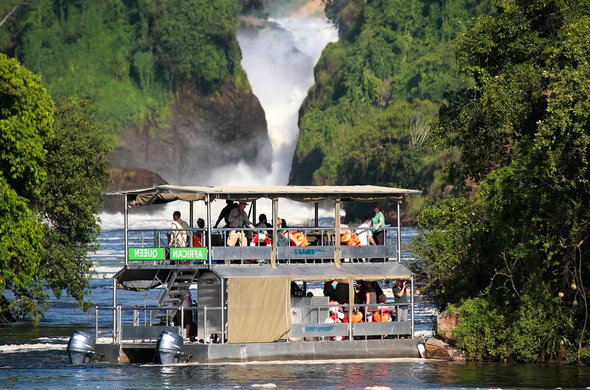
10DAYS/9NIGHTS UGANDA-KENYA-ZANZIBAR TRIP
4.00
Rated 4 out of 5
...Full-day city tour in Kampala Sites include Uganda National Museum, Kabaka’s palace, Gadhafi Mosque, cathedrals, Nakasero market) including local buffet lunch. Kampala Nightlife experience up to midnight including dinner...
Package Location
- Make Sweet Memories
- 12 Breakfast & Dinners
- First-Class Sightseeing
Together We Can Make Awesome Memories
Are You Ready To Join Us On Your Next Trip?

Why People Love Our DAY TOUR 🥰 ?


ACCRA DAY TOUR 🥰
4.00
Rated 4 out of 5
Accra is known for giving its guests a cultural experience of a lifetime. With an extensive restaurant scene, exhilarating nightlife and history that lingers through the city streets, running out of things to do in Accra simply isn't possible.
Package Location
- Make Sweet Memories
- 12 Breakfast & Dinners
- First-Class Sightseeing
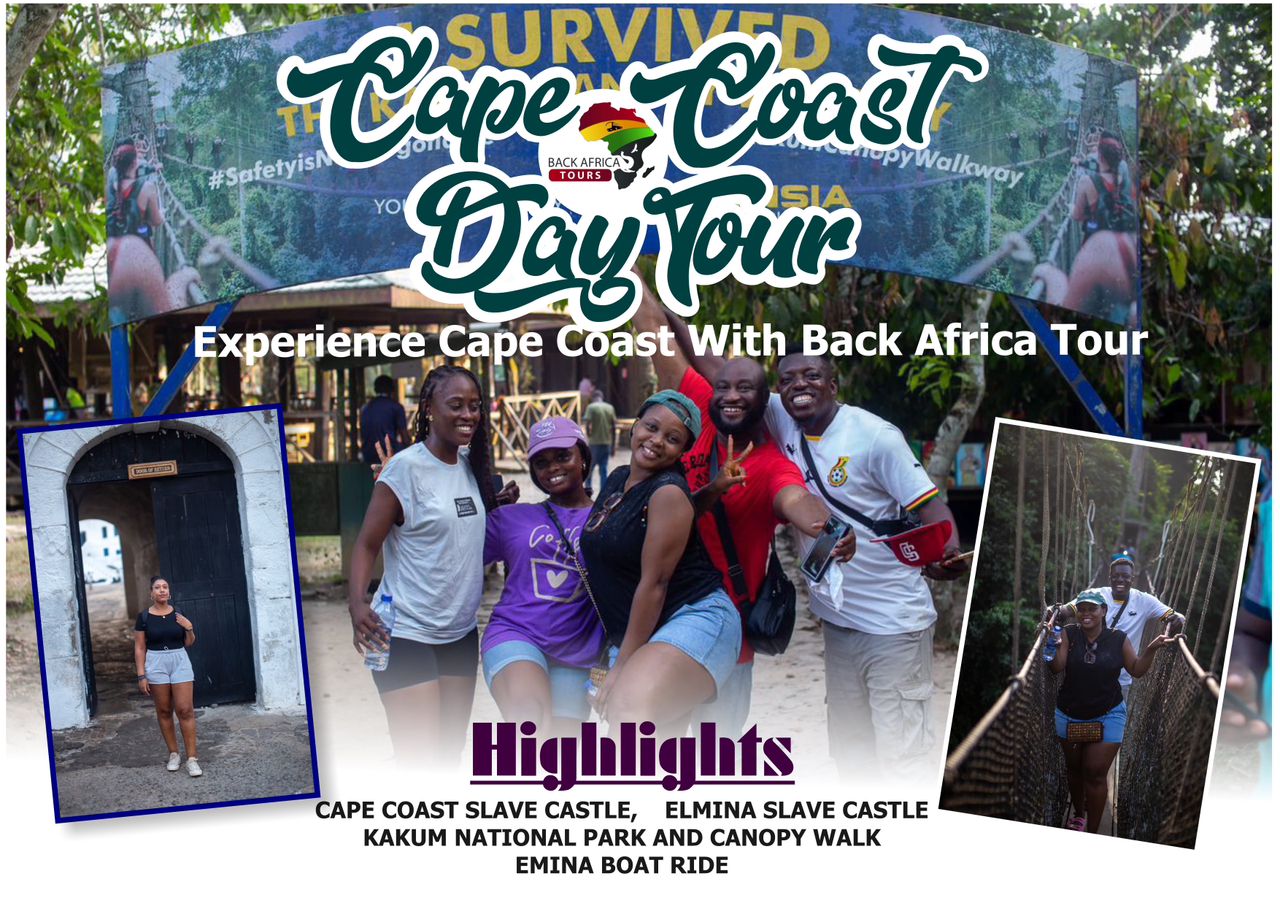
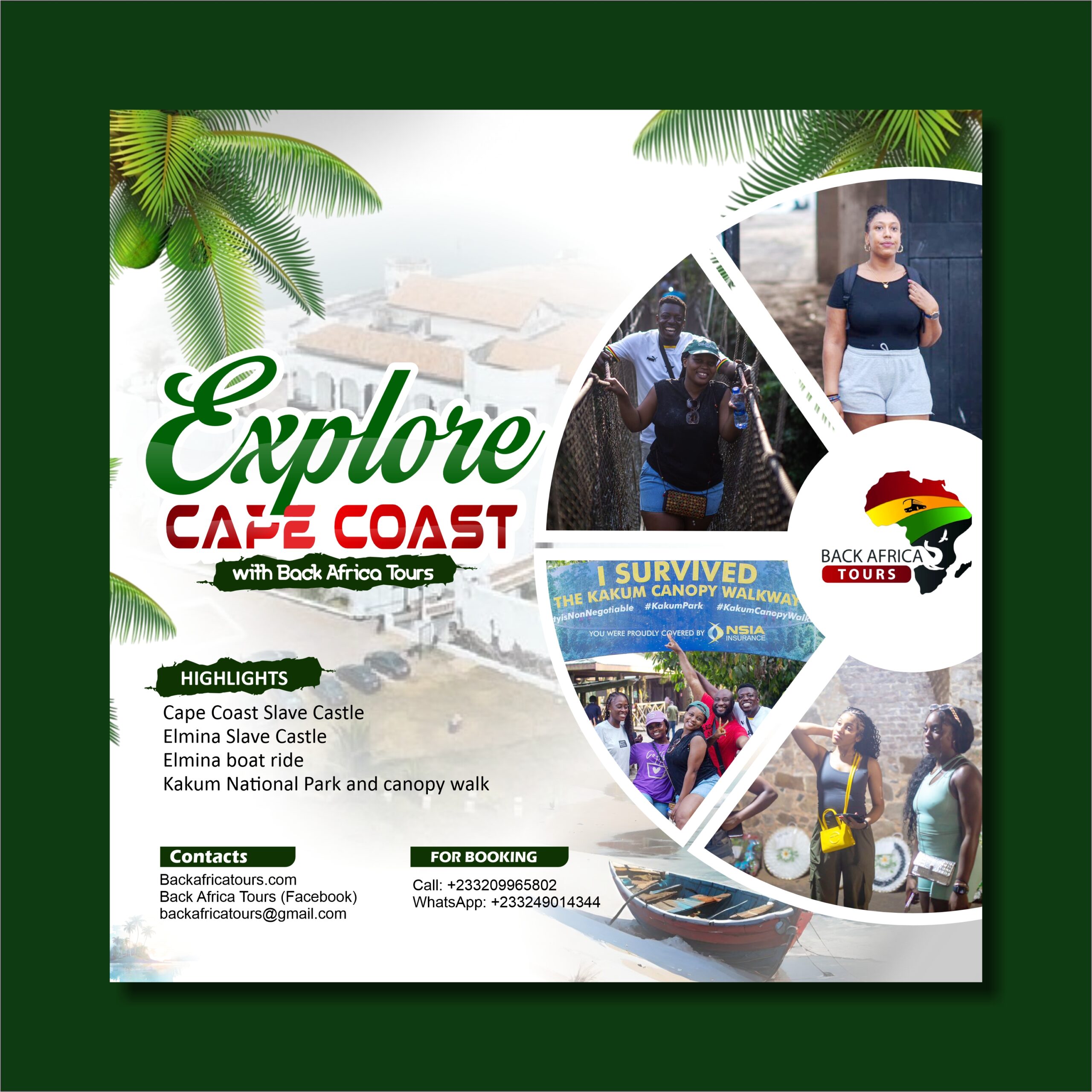
CAPE COAST DAY TOUR 🥰
4.00
Rated 4 out of 5
Cabo Corso,' meaning 'short cape', is the name the Portuguese settled on for the local settlement within which its trade lodge was built in 1555. Its corruption to 'Cape Coast' is now the accepted name of the capital of the Central Region of Ghana.
Package Locations
- Make Sweet Memories
- 12 Breakfast & Dinners
- First-Class Sightseeing
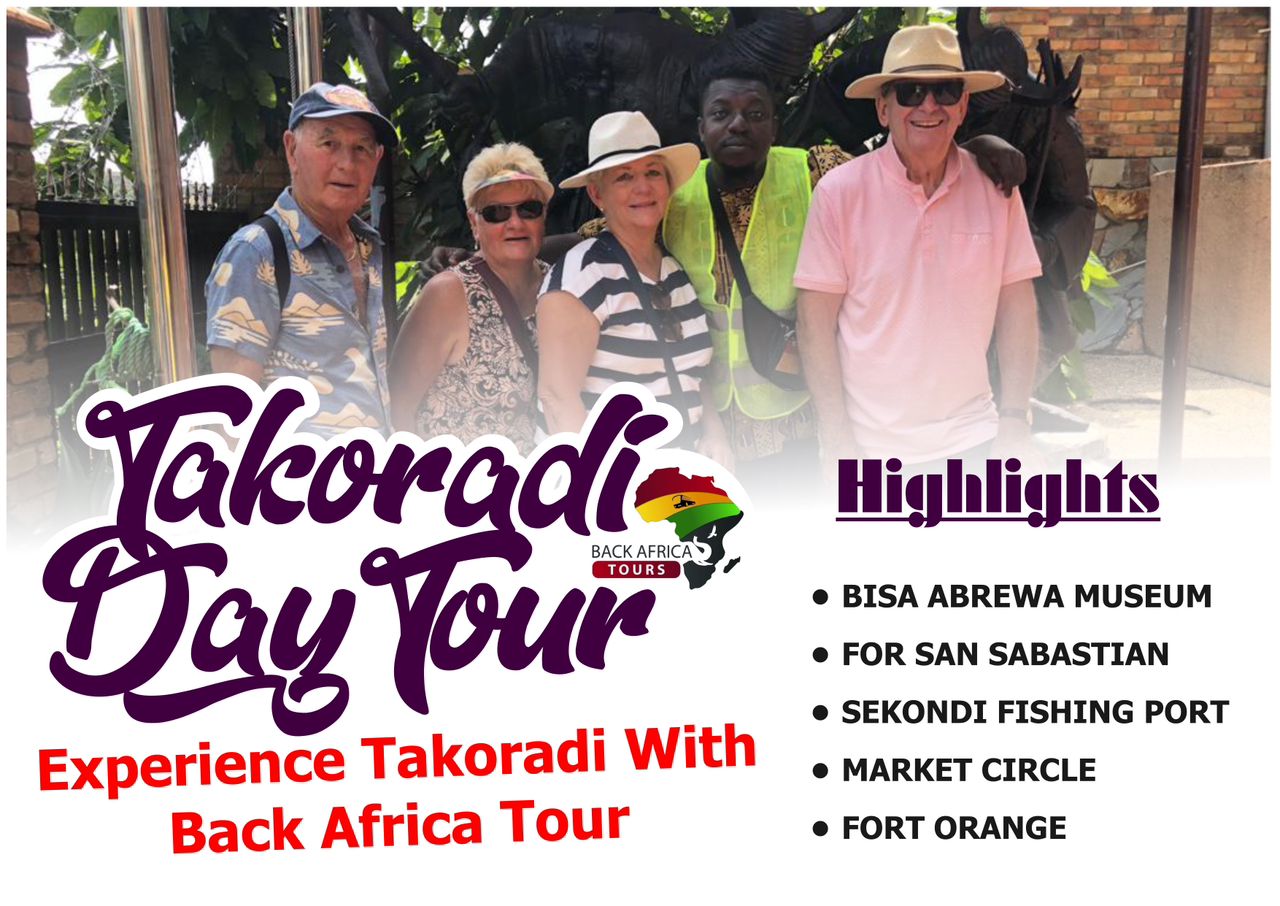

TAKORADI DAY TOUR 🥰
4.00
Rated 4 out of 5
Takoradi, located in the Western Region of Ghana, is a vibrant city filled with rich culture, beautiful landscapes, and plenty of exciting attractions. From the stunning beaches of Axim to the bustling markets of Sekondi, Takoradi offers visitors a unique experience unlike any other. Whether you’re looking for a relaxing beach getaway or an adventurous trek through the rainforest, Takoradi has something for everyone.
Package Location
- Make Sweet Memories
- 12 Breakfast & Dinners
- First-Class Sightseeing
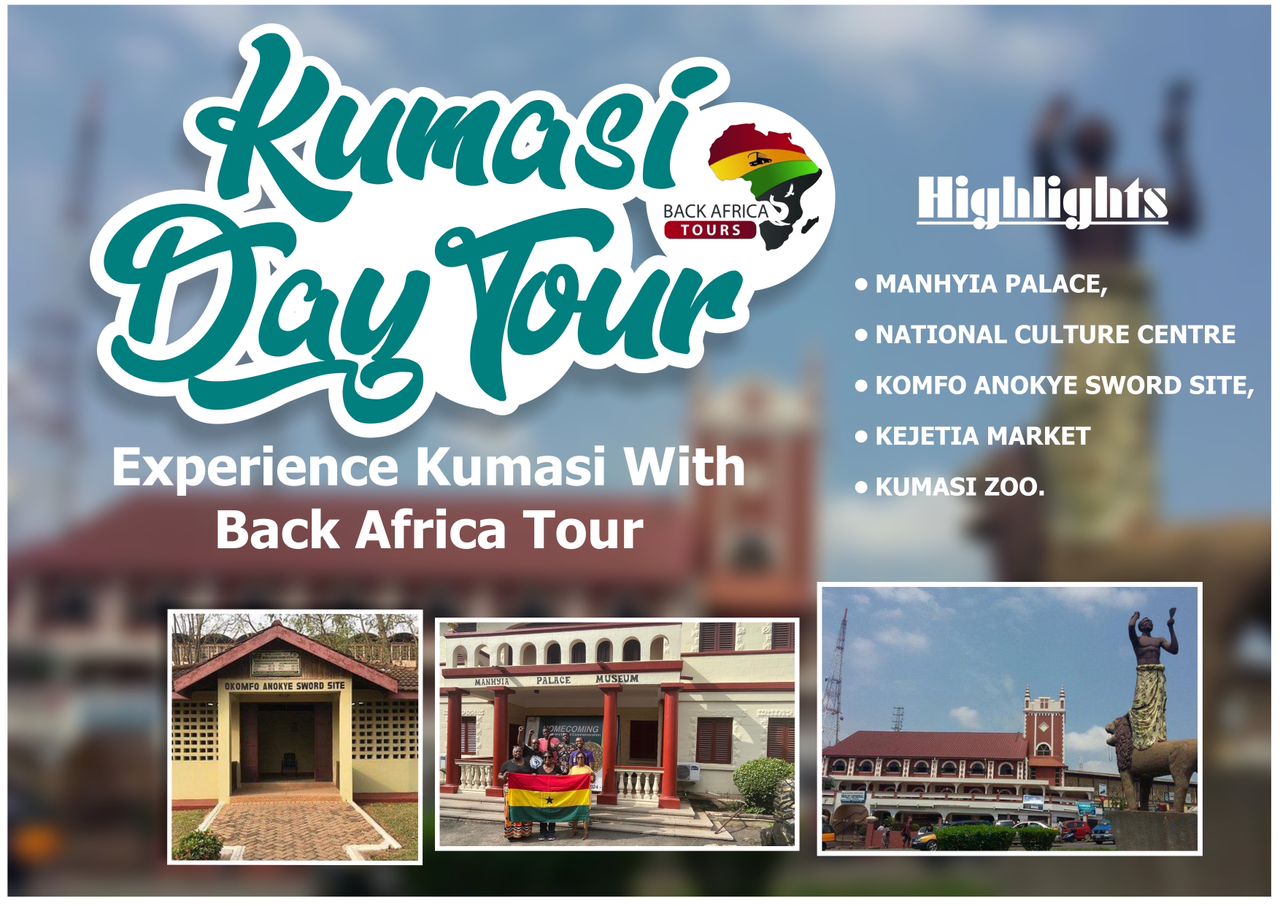
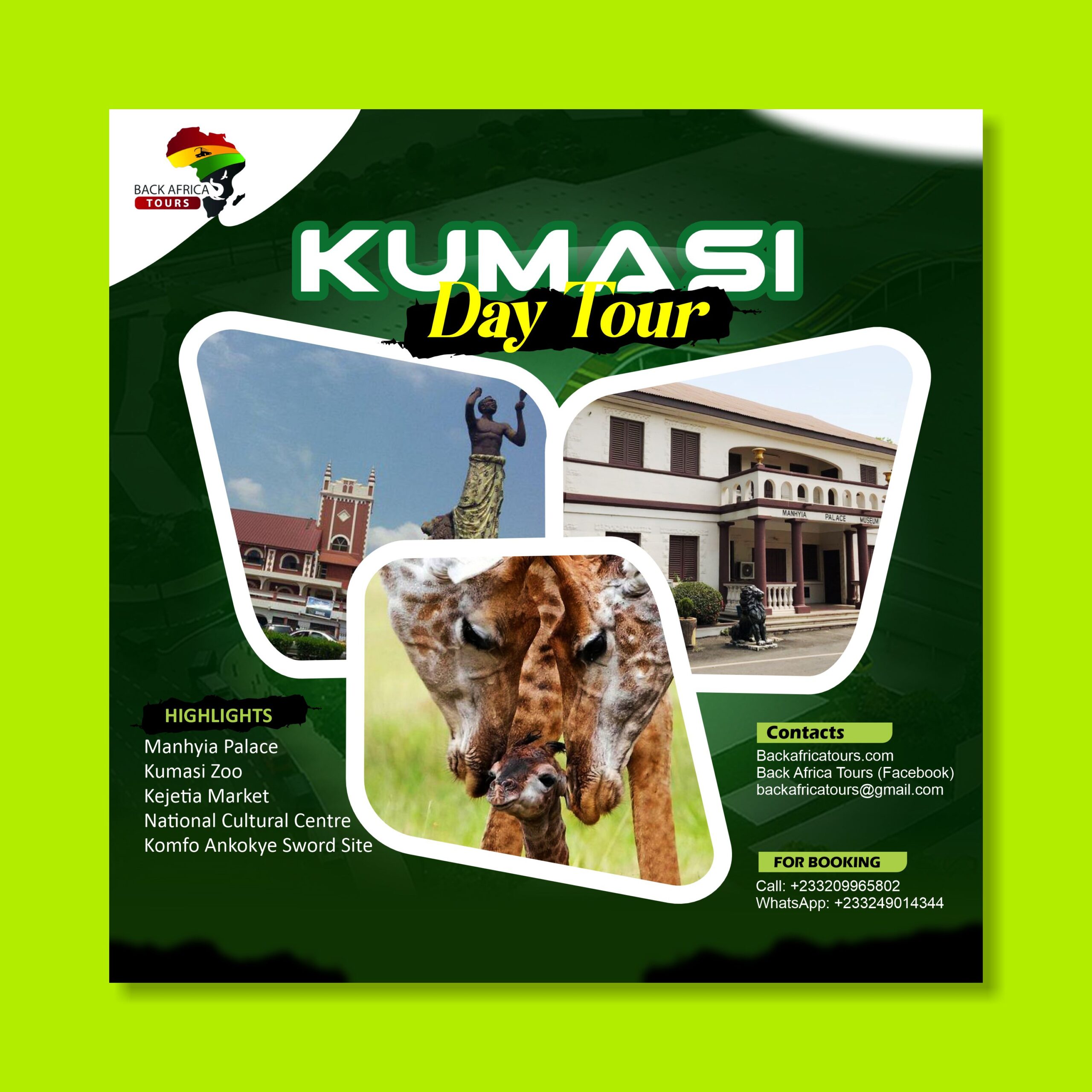
KUMASI DAY TOUR 🥰
4.00
Rated 4 out of 5
Carved out of a dense forest belt among hills rising to 1,000 feet (300 meters), Kumasi has a humid, wet climate. Osei Tutu, a 17th-century Asante king, chose the site for his capital and conducted land negotiations under a kum tree, whence the town’s name came
Package Location
- Make Sweet Memories
- 12 Breakfast & Dinners
- First-Class Sightseeing

